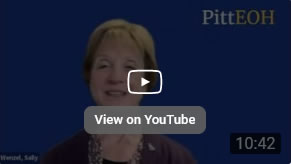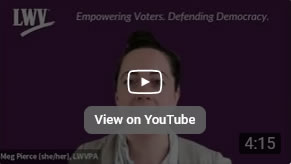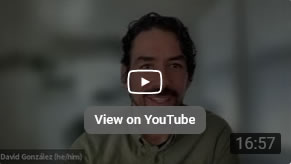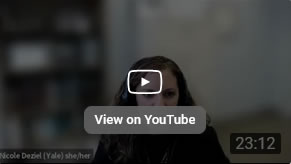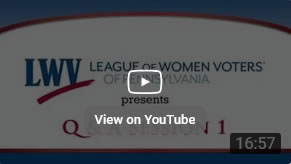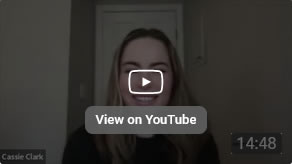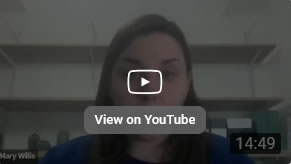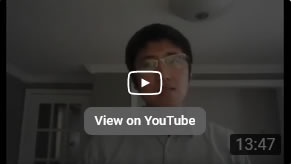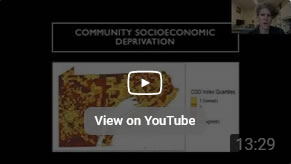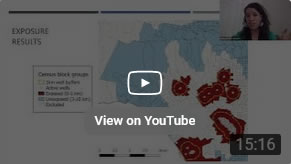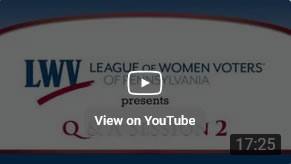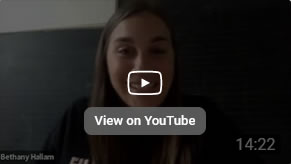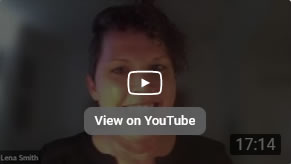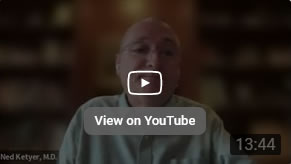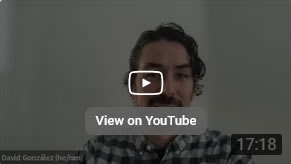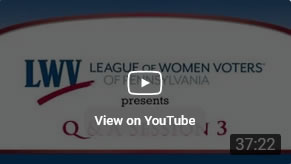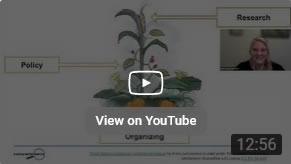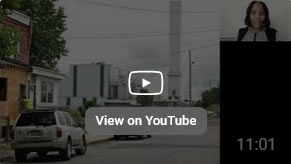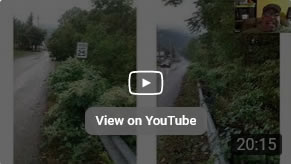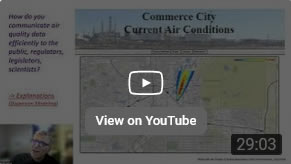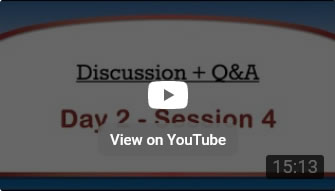The Straight Scoop on Shale
A project of the League of Women Voters of Pennsylvania Citizen Education Fund
2022 Shale & Public Health Conference
The tenth annual Shale & Public Health Conference was held over two days
Tuesday, November 15 & Wednesday, November 16, 2022
from noon to 4pm EST
New research was presented by national experts on shale and public health impacts.
The video recordings of the 10th Annual Shale & Public Health Conference are now available on YouTube. Select individual videos below or see the entire Playlist on YouTube.
Opening Remarks – Day 1
Sally Wetzel, MD, Professor and Chair Dept of Environmental and Occupational Health, University of Pittsburgh Graduate School of Public Health
Day 1
10-Year Synthesis: What have we learned?
Persistent racial and socioeconomic disparities in exposures to oil and gas development: The past ten years of environmental justice studies
David J.X. González, PhD, MS, MESc, President’s Postdoctoral Fellow at the University of California, Berkeley
Session 2: New Evidence
Unconventional oil and gas development exposure and risk of childhood acute lymphoblastic leukemia: A case-control study in Pennsylvania, 2009-2017
Cassandra Clark, PhD, Postdoctoral Fellow at the Yale Cancer Center and Yale School of Public Health
Hypertensive Conditions during Pregnancy
Mary D. Willis, PhD, MPH., Assistant Professor, Department of Epidemiology at the Boston University School of Public Health
Wastewater disposal in Pennsylvania: An environmental justice analysis
Joan Casey, PhD, Assistant Professor of Environmental Health Sciences, Columbia Mailman School of Public Health
Day 2
Session 3: Research and Policy Discussion
Session 4: Community Voices – Research to Action
Kearni Warren, Philadelphia Area Organizer for Energy Justice Network, Certified Zero Waste Associate, 2021 Emerge PA graduate, Environmental Leadership Program Senior Fellow, Co-Leader for the Southeastern Region of the PA Department of Health’s HEAT (Health, Equity, Action, Team)
Program & Speaker Introduction
Day One – Tuesday November 15, 2022
Welcome – Sally E. Wenzel, MD Professor and Chair Dept of Environmental and Occupational Health, University of Pittsburgh Graduate School of Public Health
Dr. Sally Wenzel completed her MD degree at the University of Florida and spent many years at National Jewish/University of Colorado before moving to the University of Pittsburgh. She is Director of the University of Pittsburgh Asthma and Environmental Lung Health Institute@UPMC, and Chair of the Department of Environmental and Occupational Health, School of Public Health, University of Pittsburgh. Dr. Wenzel has been NIH funded for most of her career. She has focused on improving the understanding of asthma and its phenotypes. Translationally, she has studied molecular mechanisms underlying these phenotypes, including the role of airway epithelial cell differentiation and survival. Dr. Wenzel has published over 300 papers, including in the New England Journal of Medicine and Cell. She has received numerous achievement awards from the American Thoracic Society and the European Respiratory Society, including the Amberson Lectureship in 2021. In her role as Chair of Environmental and Occupational Health, she has expanded her interests to the understanding of the role of air pollution and environmental racism locally and nationally to both clinical outcomes and biologic responses in asthmatic airways. She is broadly dedicated to improving the understanding of the environment and its impact on lung health.
Session 1: 10-Year Synthesis: What have we learned?
David J.X. González, PhD, MS, MESc, President’s Postdoctoral Fellow at the University of California, Berkeley
Dr. González is an epidemiologist, environmental scientist, and President’s Postdoctoral Fellow at the University of California, Berkeley. He studies how pollution from extractive industries and climate-driven disasters affects reproductive health and contributes to health disparities. He teaches courses in epidemiology, environmental justice, geospatial methods, and science communication in Spanish. He serves in several capacities to work towards achieving equity and justice in the sciences, including work with the Diversity and Inclusion Committee of the Society for Epidemiologic Research. He received a PhD and MS in environmental epidemiology from Stanford University, an MESc in environmental science with a global health focus from Yale University, and a BS in ecology and evolutionary biology from the University of California, Davis. His work is supported by the University of California President’s Postdoctoral Fellowship and the Ford Foundation Postdoctoral Fellowship.
Nicole C. Deziel, PhD MHS, Associate Professor of Epidemiology at the Yale School of Public Health
Dr. Nicole Deziel is a tenured Associate Professor in Environmental Health Sciences at the Yale School of Public Health and a member of the Yale Cancer Center and Yale Center for Perinatal, Pediatric and Environmental Epidemiology. Her research involves applying statistical models, biomonitoring techniques, and environmental measurements to provide comprehensive and quantitative assessments of exposure to combinations of traditional and emerging environmental contaminants. Dr. Deziel has been a leader in evaluating the exposures, health, and environmental justice impacts of unconventional oil and gas development. She directed an inter-disciplinary team of investigators on a project entitled “Drinking water vulnerability and neonatal health outcomes in relation to oil and gas production in the Appalachian Basin,” which evaluated potential impacts to drinking water and children’s health outcomes from hydraulic fracturing. She has published over 20 research articles, reviews, and commentaries related to fracking to date. Dr. Deziel serves as Executive Editor for the Journal of Exposure Science and Environmental Epidemiology and is on the Editorial Board of Environment International.
Session 2: New Evidence
Helena Archer, MPH, UC Berkeley
Helena Archer is an epidemiology PhD student at the University of California, Berkeley, who is studying the intersection of infectious disease and the natural and structural environment. Her research interests include systems science, health system disruptions and disasters, and health disparities. Prior to starting her program, she worked in maternal and child and injury epidemiology and the local and federal level in Arizona, in health informatics at a nonprofit in Lusaka, Zambia, and in global health research consulting while completing her MPH at the University of Washington. At Berkeley, she works on evaluating environmental and individual risk factors for COVID-19, including the environment of California state prisons and exposure to oil and gas well production.
Cassandra Clark, PhD, Postdoctoral Fellow at the Yale Cancer Center and Yale School of Public Health
Dr. Clark obtained a doctorate in Environmental Health Sciences from Yale University and currently holds a Postdoctoral Fellowship at the Yale Cancer Center. She combines her training in biogeochemistry, environmental epidemiology, and exposure science to conduct policy-relevant research at the interface of human and environmental health. Her research focuses on the environmental and human health impacts of unconventional oil and gas development on vulnerable populations, such as women, children, and rural and other disadvantaged communities.
Mary D. Willis, Ph.D., M.P.H., Assistant Professor, Department of Epidemiology at the Boston University School of Public Health
To date, Dr. Willis has primarily focused on how exposures from the energy sector and the built environment influence reproductive health outcomes. She is particularly interested in how epidemiological studies can be best designed to inform health-protective policy decisions.
Longxiang Li, PhD, Research Associate of Harvard T H Chan School of Public Health
Dr. Longxiang Li has been working on the health effects of living close to UOGD wells for over 5 years. He is currently funded by National Institute of Environmental Health Sciences to improve the assessment of residential exposure to unconventional oil and gas activities.
Joan Casey, PhD, Assistant Professor of Environmental Health Sciences, Columbia Mailman School of Public Health
Joan A. Casey received her doctoral degree from the Department of Environmental Health Sciences at Johns Hopkins Bloomberg School of Public Health in 2014. Dr. Casey is an environmental epidemiologist who focuses on environmental health, environmental justice, and sustainability. Her research uses electronic health records and spatial statistics to study the relationship between emerging environmental exposures and population health. She also considers vulnerable populations and the implications of health disparities, particularly in an era of climate change. Dr. Casey investigates a range of exposures including unconventional natural gas and oil development, coal-fired power plants, wildfires, power outages, and concentrated animal feeding operations.
Day Two – Wednesday November 16
Welcome – Meghan Pierce, Executive Director of the League of Women Voters of PA
Meg joined the League in October 2020 amid one of the League’s most challenging and exciting election seasons. Meg began her career in nonprofit organizations, working in the areas of gender equity and immigration advocacy. From her work in nonprofits, she developed a passion for local-level government and policy. Her work experience includes time at the New York City Mayor’s Office, the Women’s Law Project of Pennsylvania, and Planned Parenthood Pennsylvania Advocates. She has also worked on several city and state-level political campaigns in Pennsylvania. Meg holds a B.A. from George Washington University and a Master’s in Public Administration from the University of Pennsylvania.
Session 3: Research and Policy Discussion
Guest Moderator: Jacquelyn Omotalade, Esq., Public Policy Manager, Environmental Health Project
Jackie Omotalade is a southwestern Pennsylvania Native with Nigerian roots. She is a seasoned creative, advocate, technologist, environmentalist and futurist who over the past 15 years has built a reputation as a global policy, strategy, public affairs, communications & business powerhouse. Simply put, she successfully achieves the policy and public affairs goals of organizations she represents. She has lived and worked in over 7 countries in Europe, Asia, Africa, and the Americas and traveled to over 70 countries for both work and pleasure. She is the former President of the San Francisco Commission on the Environment where she spearheaded many of San Francisco’s first in the nation legislation. With a background in tech, law/advocacy, communications and environmental and public health, “Jackie O.” is an innovative global leader that has successfully built and led organizations delivering complex services that serve thousands She has been recruited to manage progressively larger organizations because of her deep expertise in developing winning strategies, building and motivating highly-engaged teams, crafting win-win partnerships and delivering complex services that serve thousands. She has extensive experience working in the US, Central America, Asia, and Africa and her passion is building a culture of innovation.
Bethany Hallam, Allegheny County Councilmember
Bethany Hallam is the Councilmember At-Large on Allegheny County Council, representing over 1.2 million residents. She was elected to office in 2019 fighting for environmental justice, government accountability, and criminal legal reform. Bethany chairs the Council’s Government Reform Committee, and also serves on the Board of Elections and Jail Oversight Board.
Lena Smith, MSW, Director of Policy and Legislation, State Representative Rick Krajewski
Lena Smith is currently the Director of Policy and Legislation for State Representative Rick Krajewski, a Freshman member of the Pennsylvania Assembly serving West and Southwest Philadelphia. In this role, she leads the Representative’s policy agenda, authoring over 20 pieces of legislation in health care, public health, the environment, child welfare, housing, the criminal legal system and more. She successfully implemented changes to the Vital Statistics law, now allowing for minors to access their birth certificates without a parent or guardian. Prior to her time in the legislature, Lena spent eight years as a community and political organizer advocating for environmental, racial justice, and economic development. She worked at Food & Water Watch with communities impacted by fracking and fracking infrastructure in the New Jersey Pinelands. She continued to pursue a career in Legislative Affairs at PennFuture, where she managed a campaign addressing Philadelphia’s Green Stormwater Infrastructure policies. Throughout her career, Lena has lobbied elected officials on water, public health, and economic justice issues and testified in front of State and Municipal Officials on the Clean Water Act and state fracking related policies. Lena is a Returned Peace Corps Volunteer, having served as an agriculture extensionist in Paraguay from 2010 – 2012. Lena earned her Masters Degree in Social Work from the Brown School of Social Work and Public Health at Washington University in St. Louis and her Bachelor of Arts in Social Work and Spanish from Gordon College in Wenham, MA.
Edward C. Ketyer, M.D., President, Physicians for Social Responsibility Pennsylvania
Dr. Ned Ketyer is a Pittsburgh, Pennsylvania-area pediatrician. Dr. Ketyer enjoyed 26 years in private practice before retiring from patient care in 2017, although he continues to write a daily blog for AHN Pediatrics called The PediaBlog (www.thepediablog.com). He remains a member of the American Academy of Pediatrics Council on Environmental Health and Climate Change and is President of Physicians for Social Responsibility Pennsylvania. Dr. Ketyer is Medical Advisor for the Environmental Health Project bringing attention to the health impacts of fracking in the Marcellus Shale gas patch. He is also Chairman of the Education and Outreach Workgroup for the Cancer & Environment Network of Southwestern Pennsylvania.
Dr. Ketyer’s work connects the rapid expansion of shale gas extraction (fracking) and petrochemical/plastic development in the Ohio River Valley with the local and regional health impacts currently experienced by residents, and the global ecologic and public health catastrophes resulting from plastic pollution and climate change that threaten the health and well-being of all passengers on this shining ball of blue.
Session 4: Community Voices – Research to Action
Robin Lesko, Senior Organizer, Food & Water Watch
Robin Lesko is a Senior Organizer for Food & Water Watch, and manages the Municipal Ordinance Project (MOP). A lifelong resident of Southwestern Pennsylvania, she has worked and lived in frontline communities affected by the fracking industry. Robin has a Masters in Counseling from Chatham University, specializing in Environmental Psychology.
Kearni Warren, Philadelphia Area Organizer for Energy Justice Network, Certified Zero Waste Associate, 2021 Emerge PA graduate, Environmental Leadership Program Senior Fellow, Co-Leader for the Southeastern Region of the PA Department of Health’s HEAT (Health, Equity, Action, Team)
Kearni Nichelle Warren is a determined organizer and activist across multiple local and global issues. She is also an author. Hailing from Chester, Pennsylvania, she has mentored youth in her hometown and honors community elders through the Caregiver Society, which she founded in 2018. Kearni is a 2022 Environmental Leadership Senior Fellow and a 2021 graduate of Emerge PA. Because of her passion for public health and her understanding of the connection with our environment, she was recently appointed as a co-leader on the Health Equity Action Team (H.E.A.T.) for the Pennsylvania Department of Health’s Office of Health Equity. She is a member of the Delaware County Sustainability Commission Zero Waste Subcommittee where she lives, assisting with the first-ever draft of a Delaware County Sustainability Plan, she is a certified Zero Waste Associate with Zero Waste USA and an alumna of Eastern University where she majored in Business Administration.
Rev. Wesley Silva, Former Council President, Marianna Borough
Pastor of the First Baptist Church of Smock. Former Council President, Marianna Borough. Father and grandfather.
The AIRE Project
Detlev Helmig, Ph.D., Principal of Boulder Atmosphere Innovation Research LLC (Boulder A.I.R.)
Dr. Helmig’s research is on surface-atmosphere gas exchange, atmospheric composition and chemistry, and atmospheric transport. Most recently, a particular focus has been the study of air quality impacts caused by emissions from to oil and natural gas operations in the Colorado Front Range. This continuous monitoring reflects a series of novel instrumental and data processing advancements that facilitate the real time reporting of primary air pollutants on public websites (https://bouldair.com/). Results have shown surprisingly high concentrations of primary air pollutants and concerning contributions from oil and gas emissions on surface ozone. This is of high significance given that the Colorado Front Range has been an EPA-designated non-attainment area for ozone. These findings have received a lot of attention by citizens, environmental groups, and regulators. The public websites that are reporting the monitoring data have been visited more than 50,000 times since their implementation. Data and their interpretation have been shared with the public, environmental groups, regulators, and the scientific community. The program has been presented in public media more than a dozen times. Selected results have been published in the peer-review literature and been essential in directing oil and gas regulations in Colorado.
Laura Martinez, Manager of Environmental Justice Programs, Cultivando
Laura has been working with Cultivando for a year but her service to her community goes back several years. She graduated from Adams 14, a district in Commerce City, CO, a Disproportionately Impacted Community (DIC). Laura obtained her B.A. in Journalism Studies and Spanish from the University of Denver. She has been involved in her children’s school district DAC, been an active volunteer at their school and served on the district board as well. Outside of school, she has been an active leader in her community, her parish and with Coloradans for the Common Good (a community-led broad-based organization) for the last four years. Her dedication to her community led her to Cultivando, where she is currently working on the AIRE project, an environmental justice project that focuses on community led air monitoring. This project has been instrumental in her EJ advocacy as it is primarily focused in her community.

